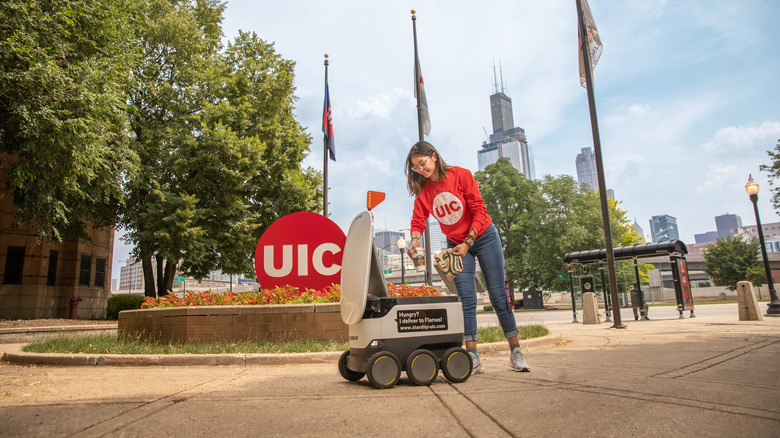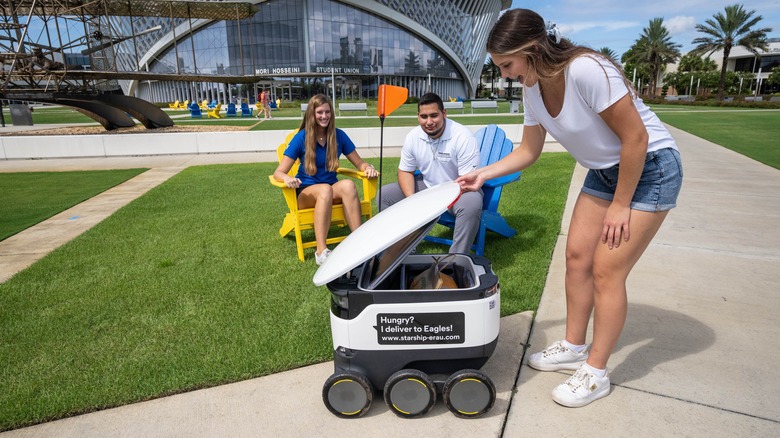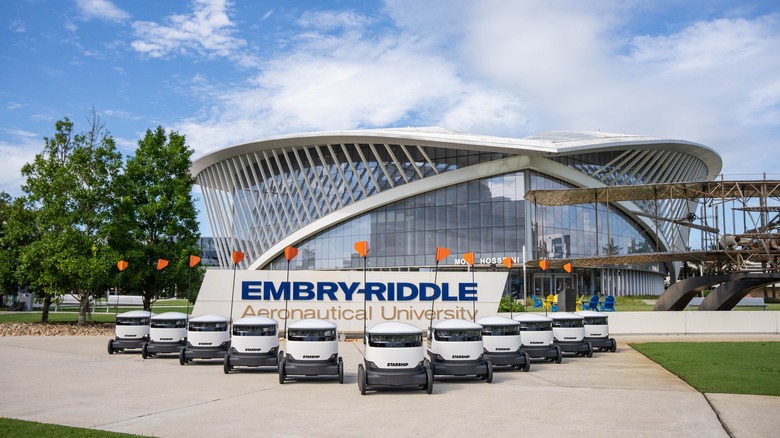Food Delivery Robots Are Running Amok On College Campuses
According to a report by CSP Daily News, at least 45% of Americans rely on food delivery services — this is equivalent to four out of every 10 Americans. By 2027, Statista projects that at least 157 million Americans will be ordering food online; this is a 40 million increase from the current number. The growth projection of customers who will be ordering food online means there will be more demand for food couriers. However, there have been reports that app delivery workers are often underpaid and mistreated.
On the other hand, Quartz reports that popular food delivery apps like Doordash and UberEats are struggling to make a profit, despite dominating 96% of the food delivery market in the U.S. Food delivery services are now using autonomous robots to reduce operational costs and solve labor shortage hiccups. Food delivery robots could also reduce the dispatch time. However, are food delivery robots viable? Well, they already are delivering food on U.S. college campuses, and they're a TikTok sensation.
The delivery robots make silly mistakes
On TikTok, students are sharing videos of autonomous robots running amuck while delivering food on campus. In one of the viral videos, a delivery robot falls down the stairs, while another autonomous robot gets hit by a train. We've also seen a footage of an autonomous robot interfering with a marching parade and another one getting stuck on the sidewalk — although it does say "thank you" after it was helped out. The TikTok videos show us a glimpse of what could go wrong if autonomous robots are making food deliveries.
@barstoolrockytop somebody isn’t getting their Chick-Fil-A for a few hours 🥲 #college #tennessee #govols #barstoolrockytop #fyp #student #vols #knoxville #tennessee #barstoolsports #robot
Some of the other potential problems could include getting hit by a bus, collisions, or getting banned from public sidewalks for causing a nuisance to pedestrians. Some university students were also arrested for vandalizing a food delivery robot, as reported by Wate. But according to Frank Comrey, the area lead of Starship Technologies, "99.9 percent of all the students on any campus we deliver on really treat the robots as pets or another student ... and they will help to rescue robots if sometimes they're off on a curb or stuck in the grass."
Autonomous delivery robots could be the future
Despite the challenges, Starship Technologies, the company running the robots on campuses, is positive about the future. The company started testing the delivery robots in 2015 before expanding to college campuses three years later. At the moment, Starship Technologies is running autonomous food delivery robots in over 20 campuses across 15 states. On its website, the company says it "completed over 4,000,000 autonomous deliveries" by November 2022 — seven years after it launched its pilot program.
To prevent theft or vandalism, the food compartment is secured and customers can only open it using a smartphone. The autonomous robots are also monitored remotely by the customer and Starship's operators — in case something goes wrong, they would know instantly.
Beyond that, the autonomous robots are limited to a radius of one to three miles, in which a delivery time should range from five to 30 minutes. The company's management insists that the autonomous delivery robots are designed to improve efficiency rather than take away jobs. "At the end of the day, there will be more people taking care of our robots, more people providing services to the merchants we deliver for, people programming our software, developing our apps on phones and tablets. So employment will change, but we believe it will go up," Alastair Westgarth, the CEO of Starship Technologies, told Forbes.


